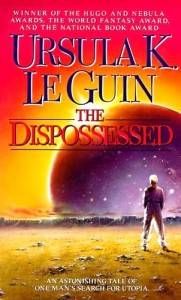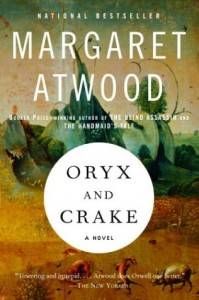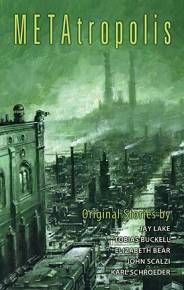I first became interested in dystopias when I studied Ray Bradbury’s Fahrenheit 451 for my final project in 12th grade AP English. We were asked to read a novel and then write a set of “Cliffs Notes” for the book. For some reason, I became obsessed with the project and rendered a final paper nearly as long as the novel itself, much to the chagrin of my teacher. This was three years after the September 11th attacks, and months after the invasion of Iraq. I remember reading and re-reading the book while listening to System of a Down, Anti-Flag, and Rage Against the Machine decry the perceived loss of democracy. It seemed a season ripe for dystopias. Fahrenheit 451 enthralled me so completely for many reasons, but the most compelling, I feel, was the sense that ignorance—the destruction of cultural artifacts, art, and books—is the greatest means of controlling a population. In the 1950s, Bradbury imagined a bookless America; an America that looks increasingly familiar. That is to say, he really freaked me out. Today we’re obsessed with (non-book) digital devices we type on with our thumbs in what could hardly be called English; we wallow in empty political rhetoric blared from giant plasma screens; and we have the most literate human population in human history who spends its leisure time watching people from New Jersey abuse each other. We don’t need Firemen to burn all the books—we were doing fine on our own. This epiphany forever sealed my fate as a lit-philosophy major. I think dystopias are so compelling because they take human collectivism to the extreme, creating situations where human life is mechanized and distorted. They explore the source and meaning of freedom, and when we look into a dystopia, we see bits and pieces of our own world: from the security cameras at Walmart to the gulags of North Korea. Though dystopias can be dark at times, they are also often an ode to the strength of the individual and the enduring power of love, creativity, tenderness, courage, and friendship. Freedom, dystopias teach us, is not given—it is discovered within. These stories point out the coercive elements of our own societies while providing hope that those systems can be transformed by the truths buried deep within the human heart. The genre has recently become wildly popular amid the recent economic downturn and predictions that global climate change will inundate the great cities of the world within a century. Some feel glum about this, but I feel crises precipitate change, and if there’s anything our society is yearning for, it’s change. There are many fans of dystopia out there who’ve read the likes of F-451, Brave New World, or Nineteen Eighty Four, so I’ll present here a few of my favorite titles that might be less known among the Book Riot community.
The Dispossessed by Ursula K LeGuin: Published in 1974, The Dispossessed is among many novels of the day investigating capitalism, collectivism, and the role of the individual in these respective social paradigms. The following year, it received the Hugo, Nebula, and National Book Award. The story is set on Anarres and Urras, twin planets whose inhabitants are split across ideological lines. Each society sees itself as a utopia, but the fallacy of a perfect place or “no place” is what drives the main character to stand alone and transcend ideology to understand the shared humanity of each society. It is a quiet, deeply philosophical masterpiece. ____________________________ Oryx and Crake by Margaret Atwood: I picked up this bizarre book while cruising used bookstores in San Francisco. I thought it had such a strange title, I had to read it. What I found was the story of one man’s quest to destroy a dystopia and start over with a “perfected,” genetically manipulated population. The story is seen through the eyes of “Snowman,” who is the sole human survivor—a witness to the end of human civilization. Oryx and Crake presents chilling and challenging views on genetic engineering and consumer culture, painting a profound picture of what it means to “play God” in the most literal sense.
Metatropolis edited by John Scalzi: The name John Scalzi is well known in the sci-fi crowd–you might have read his Old Man’s War series. In Metatropolis, he’s brought together some of the top writers in the genre to imagine a fictional post-climate change world. Stories from Jay Lake, Karl Schroeder, Tobias S. Buckell, and Elizabeth Bear present unexpectedly funny and radically unique characters inhabiting eco-dystopian cities of the future. One story describes a society dominated by MMORPG videogames played in the real world with augmented reality glasses, and another details the unusual antics of a high-rise pig farmer who thwarts porcine DNA thieves with, you guessed it, pig feces. This is a great set of stories for anyone looking for a quick dystopia fix. ____________________________ So there you have it, a bit of old and new. Does anyone else have a favorite genre-bending dystopia they’d like to share? Let’s continue the conversation in the comments!


